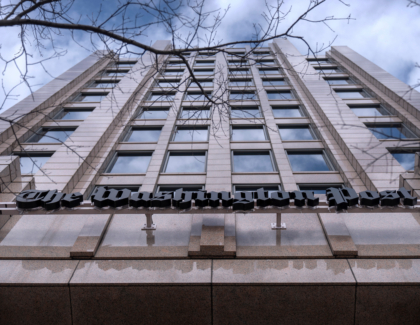Sign up for the daily CJR newsletter.
NEVADA — There’s an old adage that states, “He’s the best politician money can buy.” It’s an admittedly cynical phrase that seems especially relevant in the super PAC era, with campaign cash playing as big a role as it ever has in political races.
But just how does that cash work? It’s a particularly important question here in Nevada, home to Sheldon Adelson, the pro-Israel, anti-tax casino owner with mega-resorts in Las Vegas, Macau and Singapore. Worth just shy of $25 billion, Adelson is the seventh richest man in the U.S., and the shifting legal landscape that gives more freedom to wealthy donors has been manna to him. Before Newt Gingrich’s presidential candidacy became as dead as the proverbial dodo, Adelson and his family donated about a combined $20 million to Gingrich.
And he’s not done giving. Adelson, who once told Forbes he was prepared to plow up to $100 million into Gingrich’s campaign, has now committed $5 million to a super PAC backing Republican House candidates.
(Update, 4/29: We may not know just how much Adelson ends up donating, though. Jon Ralston of the Las Vegas Sun reported Friday that the casino mogul plans to “begin contributing to organizations that do not have to disclose their donors.”)
In a recent Bloomberg View column, Ezra Klein of The Washington Post argues that’s likely to be a better investment of Adelson’s money. Writes Klein:
Although the effect of super-PACs on the presidential race will probably be limited, I worry when I read that casino mogul Sheldon Adelson plans to pump millions into a super-PAC dedicated to influencing the outcome of congressional elections. That’s where an airdrop of a million dollars in negative ads in the waning weeks of a campaign can completely change the result.
Why might the effect of big donors on the presidential race be limited? Because by Election Day there will have been so much news coverage, and so many ads from both sides, that voters will be overwhelmed with information about the candidates; it will be hard for any particular message to break through. But, Klein writes:
In contrast, even at the end of the campaign, many potential voters will know very little about their congressional candidates. They will be susceptible to ads telling them terrible things. Some of those candidates won’t have the resources to fight back.
It’s a point to keep in mind when reading the recent coverage in the Las Vegas press about Adelson’s expected role in the Senate race here in Nevada.
The race pits Shelley Berkley, a longtime Democratic Congresswoman, against Sen. Dean Heller, a former GOP Congressman who was appointed to fill John Ensign’s seat when he resigned amid a sex scandal and allegations of bribery.
There’s an unusual backstory here: a year-and-a-half before first being elected to the House in 1998, Berkley was working as one of Adelson’s top executives. But he fired her after a high-profile spat, and their public animosity for each other has been well-known in the Silver State ever since.
So it’s both political and personal for Adelson, who could help Heller—and in the process, perhaps help Republicans gain a Senate majority—with more than just a little manna of his own. Anjeannette Damon detailed this history, and Adelson’s likely role in 2012, in a sharp April 24 article for the Las Vegas Sun.
A day later, Las Vegas Review-Journal columnist Steve Sebelius took up the same topic. Money doesn’t always prevail even in lower-level races, Sebelius smartly noted; Adelson’s bankrolled many losers, often in campaigns against Berkley, in the past:
But this year, she’s running against appointed incumbent U.S. Sen. Dean Heller, and the race is sure to be close. Even a little Adelson money could tip the balance, and perhaps advance a feud that’s been brewing since Adelson terminated Berkley has [sic] his vice president and general counsel.
Whether Adelson—or any other particular big donor—holds that much sway will depend in part on whether the Berkley-Heller Senate race is more like the presidential campaign, or more like a “low-information” House contest. In her article, Damon uses her contacts to add some perspective and suggest that super PAC dollars will be just one part of the equation:
But Democratic sources caution against overstating the impact of Adelson’s money in a race that is going to draw significant outside spending no matter what. That spending, and spending in the presidential race, will quickly saturate Nevada airwaves, making it difficult for Adelson to fund television ads.
In other words, voters will see ads with information about Heller and Berkley from lots of different sources.
But the other place voters should be getting that information from, of course, is their local media. Nevada journalists are already demonstrating their acumen for following the money trail. They’ll need to continue on that path—but also to take the fork that leads them to serious discussions of the candidates and the issues.
That’s an imperative that extends well beyond this Senate race, and this particular swing state. Klein predicts that, come November 6, the electorate will know “very little” about the candidates for Congress. Reporters still have six months in which to, hopefully, prove him wrong.
Has America ever needed a media defender more than now? Help us by joining CJR today.






